hankyoreh
Links to other country sites 다른 나라 사이트 링크
[Interview] Exploring the shadows of Japanese society
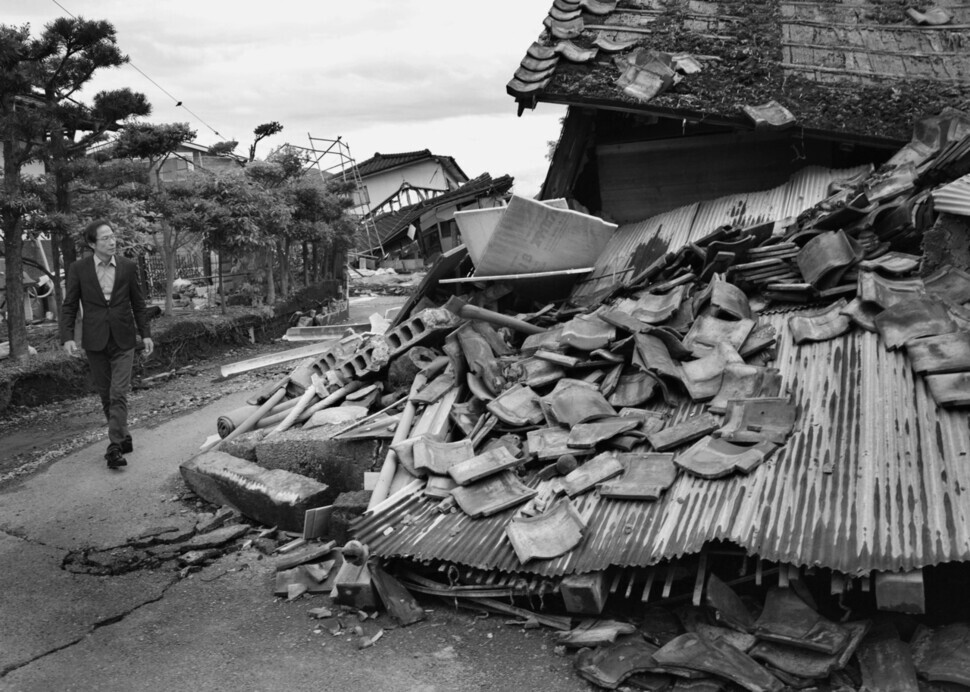
“The strength of South Korean society was demonstrated by its response to the COVID-19 pandemic. I think that, slowly but surely, Korea is becoming a country that combines a ‘strong society’ with a ‘strong state.’ But we shouldn’t downplay our current challenges. If diverse lifestyles aren’t guaranteed, society won’t be able to function.”
A Korean translation has just come out for a book by Kang Sang-jung, 70, professor emeritus at the University of Tokyo, known as the “intellectual of change.” “Risen State, Abandoned People,” originally published in Japanese in 2018, collects a series of travel essays that Kang contributed to Japanese dailies for one year and eight months, beginning in January 2016. As a political scientist and second-generation Zainichi Korean (Korean-Japanese), Kang is a respected voice both in Korea and Japan.
In two email interviews with the Hankyoreh around the time the Korean translation of his book was published, Kang said his book “represents the shadow of modern Japan.”
“If we don’t pay attention to that shadow, we’ll probably find it hard to live through the coronavirus era. The coronavirus era is expected to have such a severe long-term impact that Japan will have to examine its lifestyle, the raison d’être of its institutions, and its technological and economic system as a whole,” the scholar said.
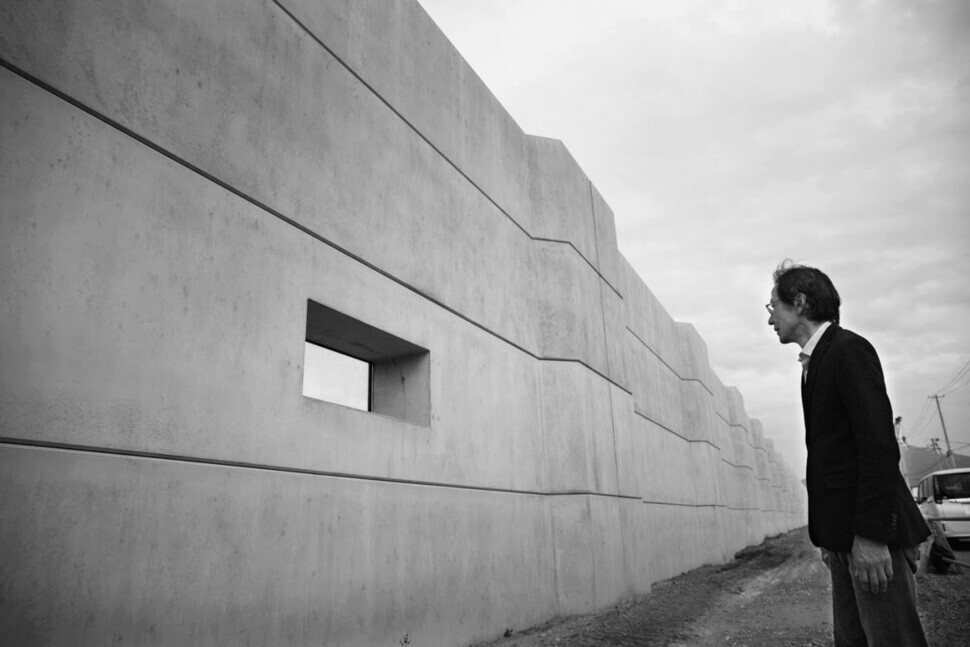
From Gunkanjima (Hashima Island) in Nagasaki Prefecture in the south to Notsuke Peninsula on Hokkaido in the north, Kang crisscrossed the Japanese islands on the trail of abandoned people who have struggled to survive during the century and a half since Japan’s Meiji Restoration of 1868. Under the slogan of “wakon-yosai (和魂洋才)” — which means harmonizing the Japanese spirit with technology from the West — Japan transformed into a modern state whose imperialism ultimately led to the War in the Pacific and the tragic nuclear attacks on Hiroshima and Nagasaki.
But it didn’t end there. The Japanese government’s response to each apocalyptic event — such as the mercury poisoning that caused Minamata Disease and the Fukushima nuclear disaster — has been to kick out the victims. Such behavior reflects the deluded assumption that “undeveloped people” cannot exist in the “developed country” of Japan. Rather than searching for the cause of the tragedy, modern Japan’s tendency has been to “treat it as merely being a natural disaster and to flee into the safe zone of forgetfulness, where the comedy of the routine can be sustained.”
At a time when Japanese nationalism is buoyed by economic prosperity and cultural pride, Kang soberly presents the stories of those who have suffered in the shadows, objects of scorn, afflicted by poverty and disease. These stories are enhanced by his spirit of anthropological field work and investigative journalism. His academic sensitivity and rigor and the diasporic sentiment of a gloomy age are enhanced by philosophical thought based in his economic identity, producing a rarely seen depth.
Kang was the first person that refused to register the fingerprints demanded of Zainichi Koreans in the 1980s, which no doubt gives him some personal insight into the stories of the “abandoned people” that he tells. “Being born a Korean in Japan, and beyond that living on the Japanese mainland, means living a life on cultural borders,” he said.
Recognizing how far he is from the center, Kang defines himself as a “person who has embodied life on the border” and the “heir of those who live along a cultural border.” Even so, he quoted Walter Benjamin by saying that he “wanted to find the ability to strike ‘sparks of hope’ from what is changeable and what has disappeared or is disappearing.”
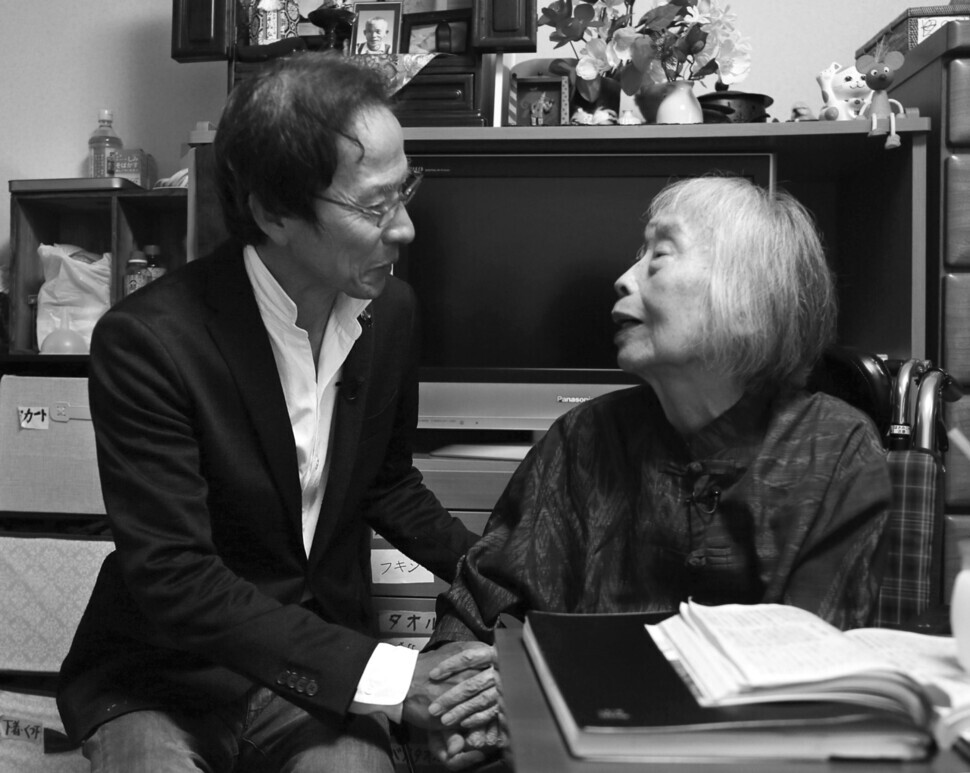
Kang believes that “the ‘true nature’ of regions, societies, and states is revealed during disasters” and identifies an “ethical contempt for the poor” hidden deep in the Japanese psyche, a contempt that’s especially prevalent during earthquakes and similar disasters.
One section I’d like to particularly recommend to readers is the one dealing with pollution at the Ashio copper mine, in Tochigi Prefecture, which was at one point the largest copper mine in Asia. Whenever the mine flooded, the toxic chemicals washed out of the mine caused serious harm to the local population, ranging from stillbirths to deaths. It reached the point that Shozo Tanaka (1841–1913), a thinker and social activist, personally petitioned the emperor in 1901 to take action to save the lives of the people. In order to keep the toxins from polluting the capital of Tokyo, the government created a reservoir that swallowed up the fertile soil in the nearby villages. The villagers were forced to leave, leading to the extinction of their villages.
On the topic of discrimination, Kang recalls the Honmyoji Incident in 1940, an effective “leper hunt” in which the children of people with Hansen’s disease (formerly known as leprosy) were blocked from attending school. Japan’s National Eugenic Law (1940) and National Physical Strength Act (1940), which were influenced by the Nazis’ ideology of eugenics, divided the people into superior and inferior castes as a form of control. In regard to the nationalism that has taken hold in Japan, Kang laments the global shift to the right, drawing upon the historical changes he recalls from personal experience.
“The renaissance of nationalism may have arrived, but I still feel compelled to ask whether it’s really so amazing to be Japanese. Are people really so proud to be Korean or American? [. . .] Patriotism and nationalism have a serious flaw: namely, they lack reflection upon state violence used in governance.”
The final section of the book alternates between scenes from Koreatown and the true nature of Japan’s rule over abandoned people during the last century and a half. Kang also deals with the hate speech and stigmatization that have trampled upon the desire to get along together. Compared with the first generation of Zainichi Koreans, who were accused of “all the negative qualities in the world, such as being lazy, unruly, jealous, suspicious, poor, ignorant, unenlightened, inferior, criminal, and impure,” the current situation is something of a paradox. “The spread of what could be called Koreaphobia has ironically combined with the fad for Hallyu to make our Korean-ness stand out.”
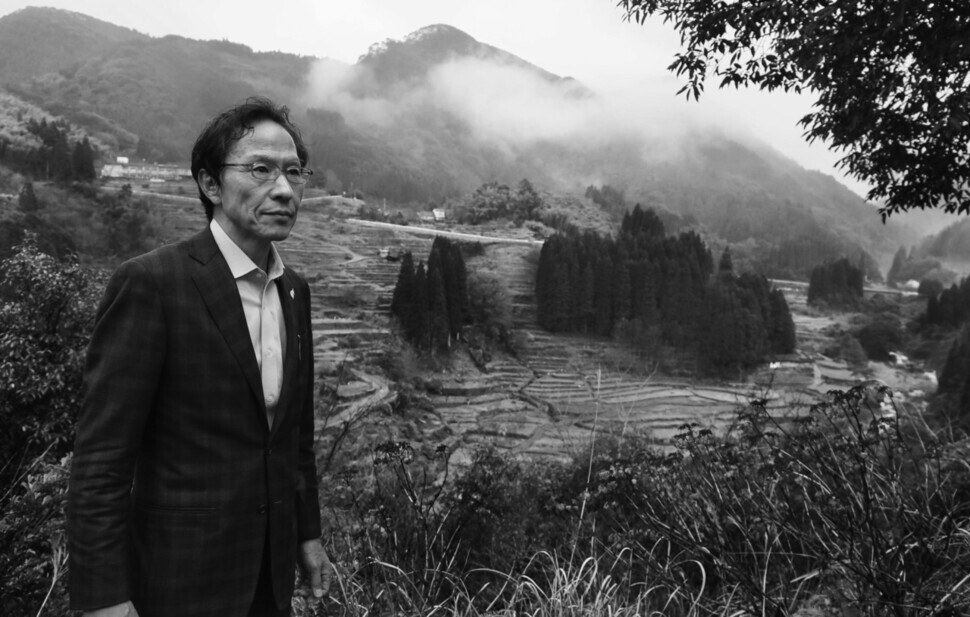
“It’s still too soon to say whether or not the mood of Koreaphobia will spread in Japan, but I’m worried about what will happen if the two countries’ competitive relationship is underlined by Korea’s participation in the G11,” Kang said during the email interview. “The Japanese feel a national pride about Japan being the only Asian member of the G7.”
I also asked Kang about a remark made last month by Shigeru Ishiba, former secretary-general of the Liberal Democratic Party (LDP) and a leading contender as the next prime minister of Japan after Shinzo Abe. Ishiba created a stir when he said he means to read Kang’s new book, “The Future of the Korean Peninsula and Japan,” which reportedly contains strong criticism of South Korean President Moon Jae-in’s policy toward Japan.
“The Moon administration is the legitimate successor to the historical trend. But Korea isn’t paying as much attention to Japan as it did under Kim Dae-jung, so I don’t think you could say it’s effectively managing the Korea-Japan relationship. I do make some mention of that issue in my book,” Kang explained.
“The goal of my book is to show that the larger trend in history is ending systems of division, while recognizing that tensions are rising between South and North Korea. In that sense, the Moon administration is the legitimate successor to the historical trend, and the legacy of the presidencies of Kim Dae-jung, Roh Moo-hyun, and Moon Jae-in is shown to embody the overarching will of the Korean people. [. . .] Fifty-five years since Korea and Japan signed their treaty on basic relations, I think they’re finally on an equal footing.”
In “The Future of the Korean Peninsula and Japan,” Kang argues that South Korea and Japan should maintain their treaty. “Moving forward, the two countries need to cooperate on updating the treaty for the present age without changing its basic idea or framework, so as to approach something more substantial,” he said.
“Even if the two governments settled all outstanding issues in their claims agreement, various issues have come to light that weren’t apparent back in 1965. The various expressions of apologies made by the Japanese government, including the Kono Statement, the Murayama Statement, the Kan Statement, and the 2002 Japan-North Korea Pyongyang Declaration, represent Japan’s response to historical trends that were different from the time when it signed the treaty on basic relations,” Kang said. He believes the two countries’ relations need to be updated to account for the changing times.
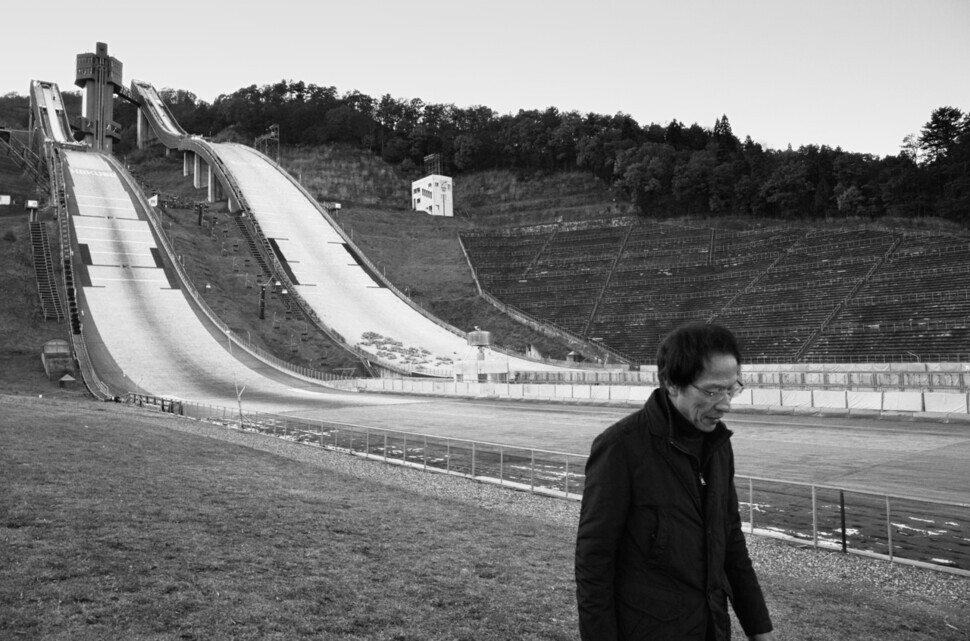
In the email interview, Kang brought up the impact of the COVID-19 pandemic several times: “The nightmare of a global depression might become a reality.”
“South Korea needs to keep working to persuade Japan that ending Korea’s division is in Japan’s national interest, and Japan needs to move away from the geopolitical assumption that a divided Korea is a necessary condition for ensuring its safety,” Kang added.
“Our two countries need to work together to build a multilateral peace regime in East Asia. That was the point I most wanted to emphasize in ‘The Future of the Korean Peninsula and Japan.’ From this point forward, this isn’t just a matter of inter-Korean relations.”
“Inter-Korean relations might currently appear to be in crisis, but there’s certainly no reason to be pessimistic,” Kang said in a response to a second email sent after North Korea blew up the Inter-Korean Joint Liaison Office in Kaesong. “This crisis is another temporary reaction, and North Korea’s crude actions are its own way of signaling that it’s seeking a breakthrough.” Kang also called on the Moon administration to “hold consistently to its policy of engagement.”
“North Korea is currently backed into a corner. Push it much harder, and it might lash out at South Korea, with potentially unbearable consequences. [. . .] Of course, I’m confident that President Moon cherishes the last wishes of Kim Dae-jung [that there must never be another war in Korea] and is working to achieve harmony in inter-Korean relations,” Kang said.
By Lee Yu-jin, staff reporter
Please direct comments or questions to [english@hani.co.kr]

Editorial・opinion
![[Column] Season 2 of special prosecutor probe may be coming to Korea soon [Column] Season 2 of special prosecutor probe may be coming to Korea soon](https://flexible.img.hani.co.kr/flexible/normal/500/300/imgdb/original/2024/0426/3317141030699447.jpg) [Column] Season 2 of special prosecutor probe may be coming to Korea soon
[Column] Season 2 of special prosecutor probe may be coming to Korea soon![[Column] Park Geun-hye déjà vu in Yoon Suk-yeol [Column] Park Geun-hye déjà vu in Yoon Suk-yeol](https://flexible.img.hani.co.kr/flexible/normal/500/300/imgdb/original/2024/0424/651713945113788.jpg) [Column] Park Geun-hye déjà vu in Yoon Suk-yeol
[Column] Park Geun-hye déjà vu in Yoon Suk-yeol- [Editorial] New weight of N. Korea’s nuclear threats makes dialogue all the more urgent
- [Guest essay] The real reason Korea’s new right wants to dub Rhee a founding father
- [Column] ‘Choson’: Is it time we start referring to N. Korea in its own terms?
- [Editorial] Japan’s rewriting of history with Korea has gone too far
- [Column] The president’s questionable capacity for dialogue
- [Column] Are chaebol firms just pizza pies for families to divvy up as they please?
- [Column] Has Korea, too, crossed the Rubicon on China?
- [Correspondent’s column] In Japan’s alliance with US, echoes of its past alliances with UK
Most viewed articles
- 1After election rout, Yoon’s left with 3 choices for dealing with the opposition
- 2Two factors that’ll decide if Korea’s economy keeps on its upward trend
- 3Noting shared ‘values,’ Korea hints at passport-free travel with Japan
- 4AI is catching up with humans at a ‘shocking’ rate
- 5Why Kim Jong-un is scrapping the term ‘Day of the Sun’ and toning down fanfare for predecessors
- 6South Korea officially an aged society just 17 years after becoming aging society
- 7Korea’s 1.3% growth in Q1 signals ‘textbook’ return to growth, says government
- 8Value of Korean won down 7.3% in 2024, a steeper plunge than during 2008 crisis
- 9‘We must say no’: Seoul defense chief on Korean, USFK involvement in hypothetical Taiwan crisis
- 10Is Japan about to snatch control of Line messenger from Korea’s Naver?